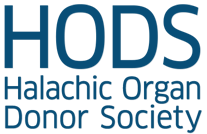Holding an Organ Donor Card
Rabbi Dr. Moshe Tendler
Holding an Organ Donor Card
[4 minutes 33 seconds]
Rabbi Tendler: Unfortunately, the organ donor card, so called, attached to the license is inadequate. It allows too much leeway. What we need is an organ donor card that specifies, yes organ donation is my will but under supervision of my rabbi.
So that one, how an organ is removed, I’ll give you a quick example: I had a question from a fellow of all places in Minnesota, who’s a Baal Tshuva and he’s an ophthalmologist and he just got a contract to do the corneal transplants, corneal harvesting for transplant purposes. However, being a Baal Tshuva, is it permissible for a religious Jew to remove the cornea of a dead patient. So yes, the halocha allows corneal transplants because blindness is tantamount to death therefore it’s like pikuach nefesh. I said to him” how do you do it”? He said, “I just take out the whole eye, and I put it in the freezer, and then at some later time, I and others will remove the cornea.” I said, “ No, you can’t do that, you’re doing more than necessary”… he said “Well that’s how they want it”. I said, “Fine so tell them that you can’t do it”. A week passes by, he calls me back again he said no they won’t allow, they want it done this way, take out the eye and then others can do it as well, others can remove the cornea. I said “fine, so you can’t do it”. Got a call from him a week after that, he said okay, they discussed it with their pastor and he says yes he understands the ethical point that it’s unnecessary mutilation. Therefore, you could remove the cornea. It could take him longer, they have to pay him more for doing it, etc. etc.
So that there’s a way to take an organ, too. A properly designed organ donor card is absolutely part of a mitzvah. It’s one thing to say: yes I want to give an organ and then not to have the permission that is necessary to be signed and available when, G-d forbid, a person can become a donor. Therefore certainly people who want to do the mitzvah should carry an organ donor card and since, after death, there’s no danger to life of the donor, it becomes an absolute mitzvah: in my opinion, not a donor but an obligation. That concept of a donation is a voluntary donation. Blood transfusion when needed is life saving and someone who can then be a blood donor has no choice – he can or cannot – the halocha obligates him to do so since there is no risk to the donor. That doesn’t apply to kidney transplant from a live donor or liver transplant as we discussed before, but post-death, post-life, when a person has died already when there’s no danger to the donor, then absolute obligation exists. Unfortunately our Rabbanim are not coming up strong enough to let them understand that just like it’s an obligation to wear tzitzis and to make Kiddush, it’s also an obligation to save a human life.
Interviewer: And to carry an organ donor card.
Rabbi Tendler: Signing an organ donor card announces to G-d, “I’m prepared to do a mitzvah”. (Hebrew) “A good thought is treated as a good deed”, so even if that person will never have to be a donor, the idea that he signed the donor card already gives him credit upstairs and nothing like credit upstairs to ward off the evil eye.
